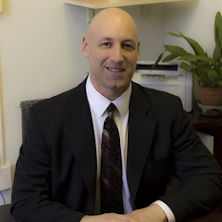
Anthony Nicotera
Department of Sociology, Anthropology, Social Work, and Criminal Justice
Course Benefited/Impact – Social Work Perspective on Race and Bias
Students used the Circle of Insight’s See, Reflect, Act framework (Nicotera, 2018, 2019) to structure and organize their podcast. The total time of the podcast was approximately 20 to 25 minutes. Students prepared an introduction to the podcast of 1 to 2 minutes. Then students spent 5 to 7 minutes focused on Seeing, looking and listening deeply to a story of injustice or bias, as a reporter might investigate a story, gathering and presenting the facts. The next 5 to 7 minutes of the podcast focused on Reflecting, critical reflection, applying core social work and course values and concepts as a lens to view the reality observed, the story shared. After that, students and the person or persons being interviewed spent 5 to 7 minutes talking about Acting, recommending appropriate personal and collective action to help address the particular problem. Students then prepared a final 1 to 2 minute outro, or summary/conclusion to the podcast.
Logistically, students met with our WSOU student leader early in semester to coordinate a detailed timeline for their project. They worked with the student leader throughout the semester on each part of the podcast. By week three of the semester, students were required to submit their podcast theme/idea; by week six, students had to submit an outline for the entire podcast and a draft of their interview questions; by week nine, students outlined key concepts and theories from the course that would serve as the lens for their critical reflection; by week twelve, students completed their interviews and began to edit and organize them; and by the end of the course, students produced the full podcast, working with the student leader on all post-production and final editing. I checked in regularly with both students and our student leader throughout the semester as each of these assignments was due, in order to review them and make suggestions.
Though a small group, students who participated found the podcasting final project to be a powerful learning experience. One Caribbean-American student interviewed her mother, a lawyer, about intersectional (gender, race) bias in the workplace. It was transformative for both of them. Another Latinx woman explored issues of bias in immigrant communities like her own. As a result of the podcast, she decided to become more active in her community’s effort to fight for justice. I planned to do the same podcasting final project with my Social Welfare Problems and Programs course in Spring 2020. Unfortunately, I was unable to do so due to the pandemic. I will offer the podcasting final project option in my courses in the 2020- 2021 academic year.
Nicotera, A. (2018). Teaching note—circle of insight: A paradigm and pedagogy for liberation social justice social work education. Journal of Social Work Education. 54:2, 384-391.
Nicotera, A. (2019). Social justice and social work, a fierce urgency: Recommendations for social work social justice pedagogy. Journal of Social Work Education. 55:3, 460-475.